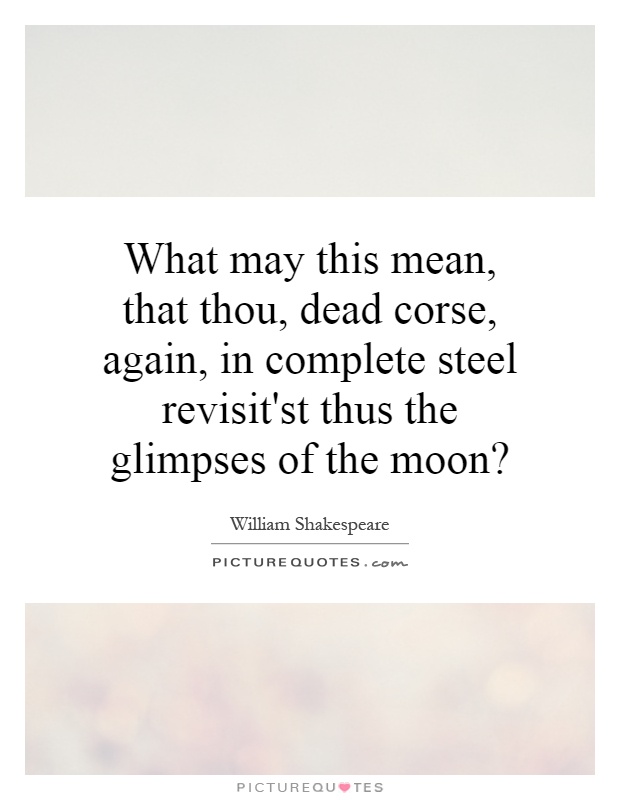What may this mean, that thou, dead corse, again, in complete steel revisit'st thus the glimpses of the moon?

What may this mean, that thou, dead corse, again, in complete steel revisit'st thus the glimpses of the moon?
In William Shakespeare's play Hamlet, the line "What may this mean, that thou, dead corse, again, in complete steel revisit'st thus the glimpses of the moon?" is spoken by the character Hamlet in Act 1, Scene 4. This line is part of a larger speech in which Hamlet is addressing the ghost of his father, King Hamlet, who has appeared to him in the form of a ghost.The line reflects Hamlet's astonishment and confusion at seeing his father's ghost, who has returned to the world of the living in full armor. The use of the word "dead corse" emphasizes the fact that King Hamlet is no longer alive, yet he has returned to Earth in a physical form. The mention of "complete steel" further emphasizes the ghost's appearance in armor, suggesting a sense of power and authority.
The phrase "revisit'st thus the glimpses of the moon" is a poetic way of describing the ghost's return to the mortal world. The moon is often associated with the supernatural and the mysterious, and its "glimpses" suggest fleeting and ephemeral moments. By using this imagery, Shakespeare creates a sense of otherworldly presence and mystery surrounding the ghost's appearance.
Hamlet's question in this line reflects his inner turmoil and uncertainty about the nature of the ghost's visit. He is torn between believing that the ghost is a true spirit of his father seeking justice for his murder, and the possibility that it may be a demonic entity sent to deceive him. This internal conflict sets the stage for the central theme of the play, which is Hamlet's struggle to uncover the truth and seek justice for his father's death.
Overall, this line from Hamlet encapsulates the play's themes of death, revenge, and the supernatural. It highlights the complex emotions and moral dilemmas faced by the characters, as well as Shakespeare's skill in using language to create a sense of mystery and intrigue.












 Friendship Quotes
Friendship Quotes Love Quotes
Love Quotes Life Quotes
Life Quotes Funny Quotes
Funny Quotes Motivational Quotes
Motivational Quotes Inspirational Quotes
Inspirational Quotes